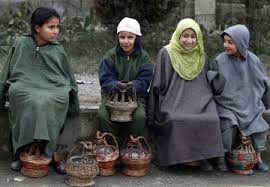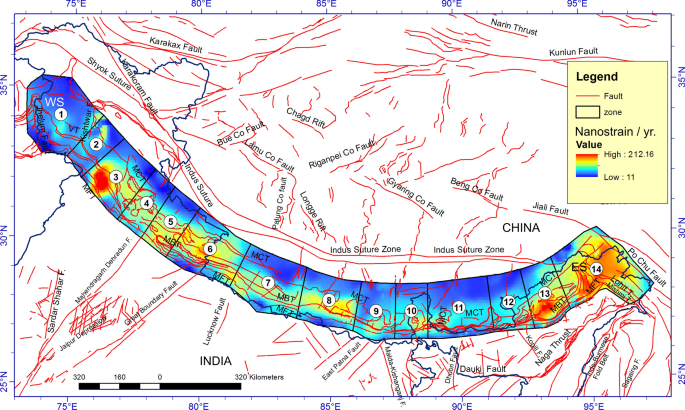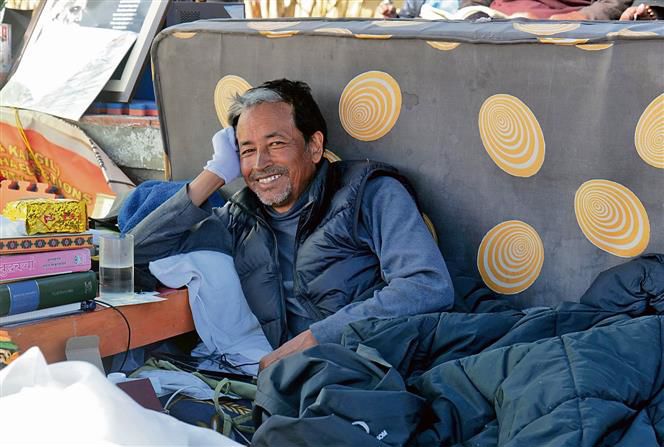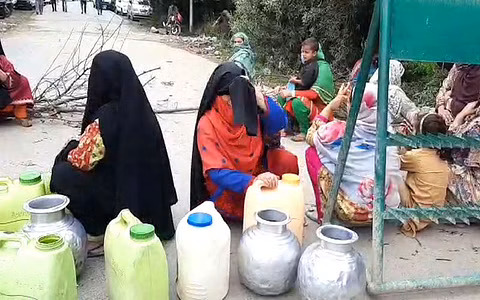It is around 4.30 in the evening and many people including a few elders from a village in South Kashmir can be seen sitting at the front of a shop. One among the elders is gazing at a barren mountain that used to remain covered in snow during winter and spring. “It has become Punjab here. There will be huge water crisis this year and there is a low possibility of crop yield,” he rued.
Almost everyone in Kashmir opines that this year will be difficult for agriculture and horticulture. January has been totally dry across the valley, raising concerns about apple crop and water availability during summer.
Kashmir marked the end of Chillai Kalan on 31 January, the harshest period of winter in which the Valley would normally receive a lot of snowfall, coupled with the lowest temperature of the winter season. The 40-day-long period is perceived as a blessing by many in the Valley. It is said that farming and the water level in streams, rivers and other water bodies depends on how much snow has fallen during these 40 days. Chillai Kalan is followed by a 20-day long Chillai Khurd (small cold) and a 10-day-long Chilla Bachha (baby cold).
The new phenomenon that has been witnessed in Kashmir this year is that it has not snowed at all during this period. Not only this, the climate remained warm and sunny during the period.
“This kind of climate is rare in the Valley. It didn’t snow last year as well till mid of Chillai Kalan, but by 15 January whole Valley was covered with snow,” Mohammad Amin from Anantnag told Kashmir Post.
People in the tourism industry say that due to the dry winter, there are fewer tourists coming to the Valley. The absence of snow has discouraged many from travelling to the Valley. “We used to receive a good number of tourists during the winter season before the 2016 unrest, which served a heavy blow the industry. With the normalcy returning, we were expecting a good number of tourists this winter but the absence of snow in the Valley has kept the tourists away,” Mushtaq Raina, a hotelier told Kashmir Post.
Experts say that the temperature has risen in Kashmir which has affected the quantity of snowfall. “The temperature has increased as compared to the last two decades, which has resulted in a lesser amount of snowfall in Kashmir,” Shakeel Romshoo, Head of Earth Sciences in the University of Kashmir told Kashmir Post.
While referring to the history of Kashmir, Romshoo said, “If we ask parents or grandparents or recollect our childhood, Kashmir used to receive heavy snowfall but it has comparatively decreased over the years”.
The dry spell has worried fruit growers and farmers in Kashmir. Mohammad Maqbool is a fruit grower from Anantnag who said that almost everyone is losing their sleep over this year’s yield. “The quantity of the fruit depends on the weather conditions. The dry climate can result in premature produce which in turn can affect the quantity,” he said.
This year, the dry spell has also given rise to an extended water crisis. Bilal Ahmad, a resident of a village in south Kashmir told Kashmir Post, “There is still huge water crisis in our area. Usually, the water crisis used to occur during the autumn season, but by early January we would get water in abundance when it used to snow”.
Director of MeT department, Sonum Lotus, while talking to Kashmir Post, said, “Kashmir might receive light rain or snow but we are not expecting a sound snowfall in the coming two weeks”. He said that such dry spells have been seen earlier too in 1986, 2007 and 2016 when Kashmir had received very little snow.
Ramshoo said that there has been no change in the overall precipitation in the last few years. ”If you look at the present phenomena in Kashmir — if it snows less, it means rainfall will increase. However, in future, water crisis that occurs during June and July may affect agriculture not only on Kashmir but also in Pakistan which is dependent on Kashmir for irrigation,” Ramshoo said.






